Varicoceles Treatment in Irvine, CA
What Are Varicoceles?
Varicoceles are a common but non-life-threatening condition affecting about 15% of adult men, often going unnoticed or without complications. This condition occurs when valves in the veins within the scrotum fail to prevent blood backflow, causing blood to collect in the scrotum. While not inherently dangerous, varicoceles may contribute to low sperm production, reduced sperm quality, and infertility, as well as potentially decreased testosterone production and scrotal discomfort. Varicoceles are easily diagnosed and treated, usually only requiring attention when concern arises over these associated issues.
How do Varicoceles Affect the Testis?
While numerous theories exist, medical experts agree that varicoceles cause the veins to carry warm blood from the abdomen down to the testis. Generally, the testis functions properly at around three degrees below the average body temperature. As such, warmblood can affect the testis’ ability to produce testosterone and sperm.
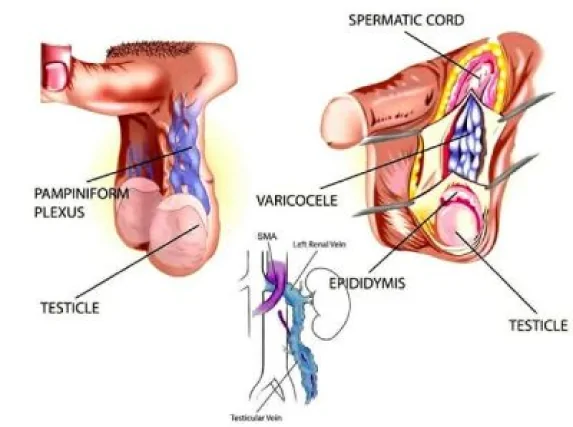
Symptoms of Varicoceles
- Switch from sharp to dull discomfort.
- Become worse over the day.
- Increase when due to physical exertion or standing for extended periods.
- Pain that goes away when you lie on your back.
- Impaired infertility.
Possible Complications of Varicoceles
Varicoceles are enlarged veins in the scrotum that can affect blood flow in the spermatic cord. Although the exact cause of varicoceles is not fully understood, most experts agree that they result from malfunctioning vein valves. When these valves fail, blood flows backward and begins to pool, causing the swollen veins to stretch and dilate.
Common complications from varicoceles include:
- Testicular atrophy (shrinking of the affected testicle)
- Impaired sperm production
- Reduced testosterone levels
- Male infertility
If left untreated, varicoceles can disrupt the delicate temperature regulation required for healthy sperm development, which is why varicocele-related infertility is a significant concern.
Early diagnosis and treatment are key to minimizing the risk of long-term effects. If you’re experiencing scrotal discomfort, testicular asymmetry, or difficulty conceiving, a medical evaluation may help determine whether a varicocele is the underlying cause.
Causes of Varicoceles
Diagnosing Varicoceles
During your diagnostic process, one of our skilled doctors will likely employ two techniques:
A thorough physical examination may reveal a non-tender mass above the testicles. When the mass is
large enough, it feels like a bag of worms. When the varicocele is small, the doctor might request you to stand, take a deep breath and hold it while you bear down. This technique will help the doctor to detect any abnormal veins enlargement.
A scrotal ultrasound test uses high-frequency sound waves to create a precise image of the structure of the scrotum. The test is also helpful in helping the doctor rule out other reasons that could be causing the problem in the scrotum.
Treating Varicoceles
Vascular Specialist in Irvine, CA
Take the first step toward a healthier and happier life today. Call Pedes Orange County in Irvine, CA, (949) 387-4724 to make an appointment with one of our skilled physicians or contact our friendly staff online at your convenience for more information about our varicocele treatments. We look forward to serving you.
Contact Us Today

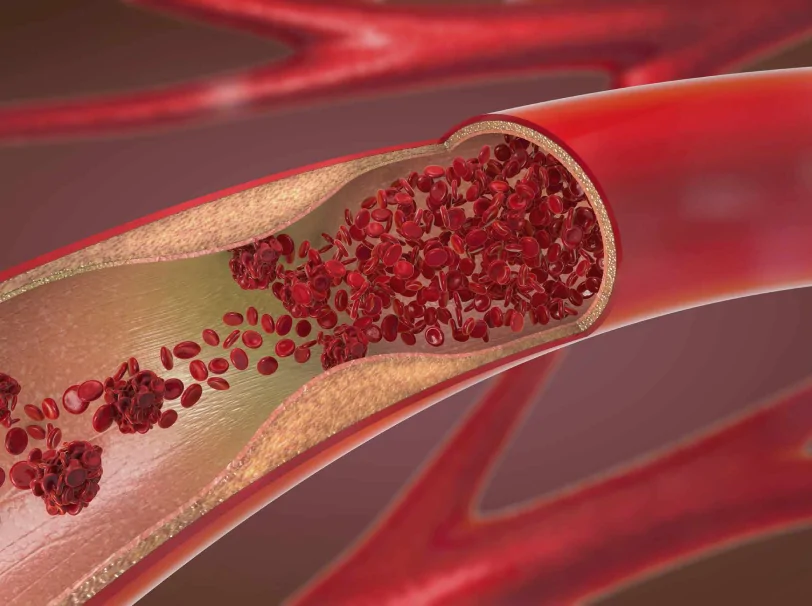
Our Vascular Disease Physicians

J. Joseph Hewett, M.D.
Vascular Specialist
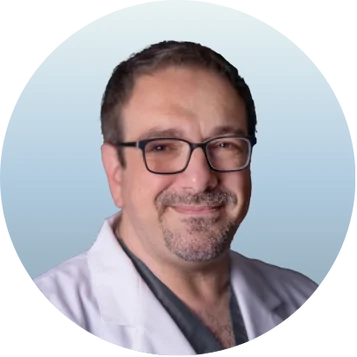
Neil K. Goldstein, M.D.
Vascular Specialist

Derrick Tran, MD
Vascular Specialist
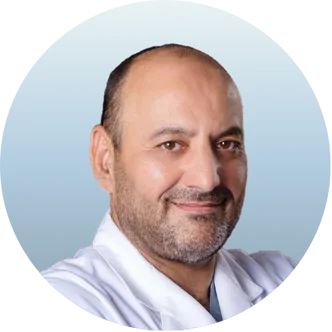
Mohammad Jaber, M.D.
Vascular Specialist
Why Choose Pedes Orange County?
What to Expect from Your Visit to Pedes
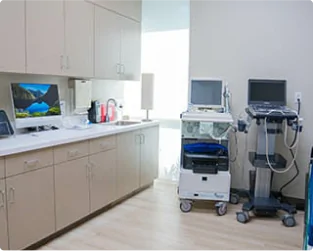
Ultrasound
Advanced ultrasound-guided examination techniques will be used to visualize the veins, arteries, or both, in your legs. This is often used in the diagnostic process to detect the presence and extent of disease.
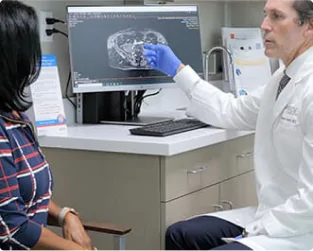
Consult
Once we review the results of your diagnostic tests, our physicians will collaborate with you to develop a personalized treatment plan, ensuring the best course of treatment for your specific condition.
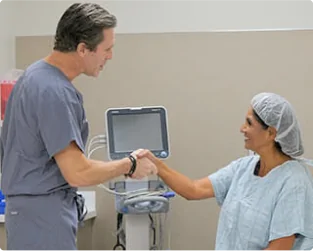
Treatment
Your treatment plan will be personalized to you and your individual needs. At Pedes, we specialize in minimally invasive procedures and nonsurgical treatments, all of which are performed by our dedicated vascular physicians within the comfort of our state-of-the-art facility.




